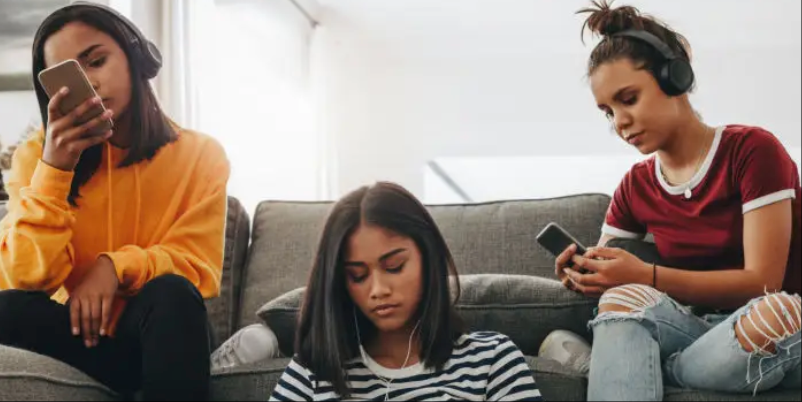
Kate is a 19-year-old college student who spends her days studying, working, exercising and hanging out with her boyfriend, as evidenced by her TikTok. She is, by all public social media appearances, like many young people in her generation: going about her ordinary day — and sharing it for potentially millions to see.
Her viral moment happened in early October, and it's surprising. She's fully clothed, wearing a gray sweatshirt and sweatpants. Her hair is pulled back in a ponytail and her makeup isn't done. It's not a GRWM, a recipe, a dance or a juicy confession. Rather, it's just Kate, sitting on her carpeted floor, "rawdogging boredom" — and 10 million people watched.
The rules of "rawdogging boredom" are pretty straightforward: No phone. No TV. No music. No distractions. Just you, sitting alone, being bored. In her most-watched post, Kate challenged herself to do it for 15 minutes. By day six, she was up to 20 minutes. But Others are recording themselves rawdogging boredom for up to an hour or longer, adding ominous music to their final cuts to emphasize how torturous the task is.
So, why are they doing it? They're just that desperate to get off their phones, according to Rowan, the productivity influencer who first started the trend in an attempt to fix his attention span. Rowan didn't like being so dependent on digital distractions. He decided to spend an hour off screens each day, and thus "rawdogging boredom" was born.
(A note about the name: Per Merriam-Webster, it refers to enduring a mundane task without any diversions. Rawdogging a flight, for example, means traveling without a book, movie, snack or even a bathroom break.)
If the challenge helps young people be more mindful and less at the mercy of "short dopamine hits," that's a good thing, says Ari Lightman, professor of digital media and marketing at Carnegie Mellon University. But he has doubts about the merits of rawdogging boredom as a TikTok trend (which will inevitably be filmed and posted on social media).
"They look at this as something to conquer, as opposed to this idea of becoming more self-aware, being more mindful. My worry is that challenges come and go," says Lightman, who believes this one deserves more longevity and more attention paid to long-term results.
And while there are benefits to boredom, the pursuit of it needn't be so, to quote Gen Z, "extra."
"Unplugging and staring at a wall for 45 minutes isn't necessarily productive or effective," adds Wetters. "But try engaging in healthy, low-stimulation activities, like taking a walk without headphones, journaling, looking out the window or even just [paying attention] to your surroundings. One of the things that I always encourage people to do is sit at a coffee shop and just people watch. All of those things can create a similar benefit without it being this extreme of having to just sit and do nothing."